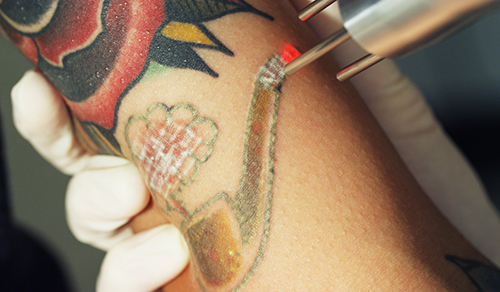Q-switched laser technology that is highly effective for laser tattoo removal can also provide benefits for other cosmetic issues – many of which can be great add-ons to a laser clinic or medical practice.
Expand Revenue Sources

NLLC laser training clients are interested in new ways of generating income. For some, tattoo removal is something they’ve thought about for several years, and they’ve seen the industry grow faster and faster. Many of our training clients also are often open to other procedures that can help them – with their same Q-switched laser equipment – to expand their profits.
At NLLC, we will discuss the other applications of the laser you use for tattoo removal to help you expand your expertise and profits as you wish. Our course is flexible to the needs of our training clients – if you have a specific interest in any of these additional applications, we can allocate more time to discuss them in-depth.
Here are some additional profitable Q-switched laser applications:
- Non-ablative Skin Resurfacing – This skin rejuvenation procedure is often called a “lunchtime facelift” because it reduces the appearance of fine lines and skin imperfections without any downtime. Non-ablative skin resurfacing exfoliates and stimulates collagen production to improve the appearance of skin tone and texture. It’s a low-intensity procedure that is often compared to microdermabrasion. Skin rejuvenation is priced similarly to laser tattoo removal – about $150/treatment – and is often sold in packages of three or four.
- Pigmented Lesion Treatment – Pigmented lesions are a variety of skin tone abnormalities, including age spots, sun spots, and other pigmentation irregularities. Much like treating tattoo ink in the skin, the excess melanin in pigmented lesions can be treated with a Q-switched laser. We recommend that practitioners only treat pigmented lesions when patients that have a clean bill of health from a dermatologist. Prices for treating pigmented lesions vary widely depending on the size of the area treated.
We’re happy to discuss these additional Q-switched laser applications. If you have a specific interest in these procedures, just let us know and we will cover these treatments more extensively.
